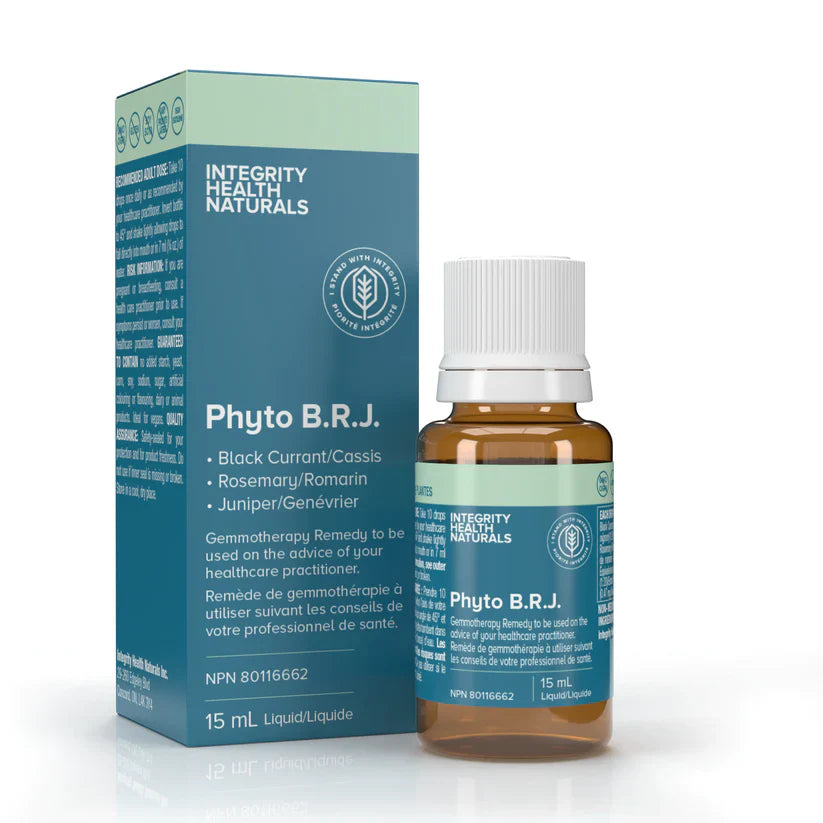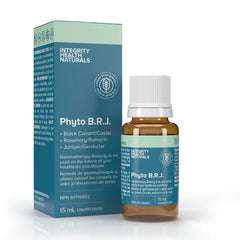

Phyto BRJ
- 40.00$
0.00$- 40.00$
- Unit price
- per
Description
x- Blackcurrant (Ribes nigrum)
Rosemary (Rosmarinus officinalis)
Juniper (Juniperus communis)
Used in allergic pathologies, synergistic action on the liver, mucous membranes and immunity.
Part of the allergy complex: Phyto BRJ + Phyto EEC
The combination of Ribes, rosemary, and juniper helps harmonize the biological bases of the atopic triad: asthma, eczema, and allergies. The combination has a synergistic effect on the liver, mucous membranes, and general immunity.
More specifically, herbal therapies affect the stress response by modulating corticosteroid and histamine responses in the body. The relationship between stress and histamine release has been established in animal and human clinical studies. Stress leads to mast cell degranulation and, consequently, elevated histamine levels.
Blackcurrant is frequently used in conjunction with other herbal remedies due to its ability to complement and enhance the action of other combinations. Blackcurrant is considered a key remedy in cases of adrenal exhaustion and corticosteroid treatment.
On a mental and emotional level, it is believed to help defend against negative thoughts often seen in rumination, depression, and anxiety. A small study of healthy volunteers consuming blackcurrant juice showed improvements in cognition and stress response.
Young rosemary shoots modulate the nervous system and have antioxidant properties. The body sequesters toxins in mucus, edema, and fat. By strengthening the liver's detoxification pathways, rosemary helps eliminate allergy-promoting compounds from the body.
Additionally, rosemary is a liver tonic. It increases the metabolism of fats, cholesterol, and steroid hormones; disruption of these processes may contribute to nonalcoholic fatty liver disease (NAFLD). An animal study showed that rosmarinic acid (RA) and carnosic acid (CA) significantly reduced liver triglyceride (TG), total cholesterol (TC), and free fatty acid (FFA) content and enhanced cell hypertrophy, leading to improvement in NAFLD. NAFLD mice fed a high-fat diet and coadministered with rosemary leaf extract experienced limited weight gain and reduced hepatic steatosis.
Traditionally, juniper has been used as a blood purifier to eliminate uric acid and excess sugar. An animal study showed that juniper berries could significantly reduce blood sugar levels. This link is remarkable considering that histamine 1 and 2 receptor signaling can regulate glucose and lipid metabolism and influence the development of hyperlipidemia-induced nonalcoholic steatohepatitis.
Produits recommandés
Produits récemment consultés
- Choosing a selection results in a full page refresh.


